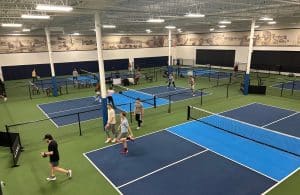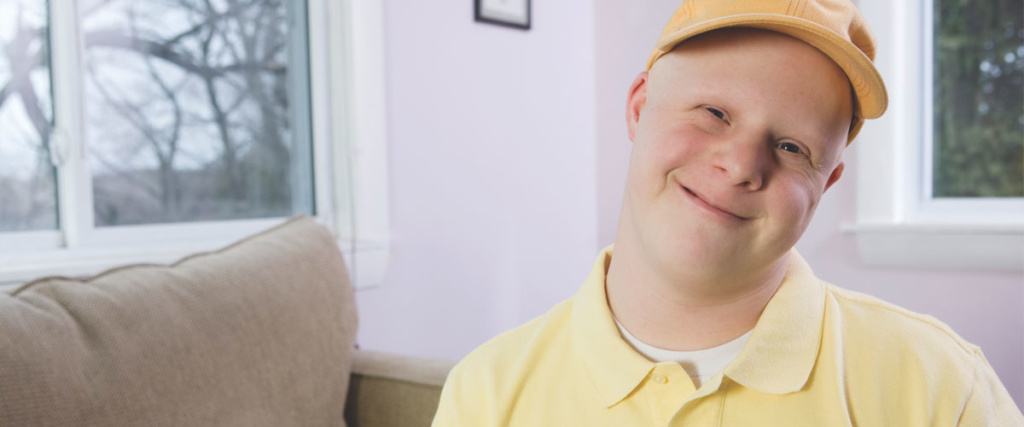It’s astonishing how in one moment a lifetime of questions can flash through your mind. The instant I heard, “We suspect your baby may have Down syndrome,” these thoughts stampeded through my brain: Will she be happy? Will she have friends? Will she learn? What happens when she is an adult?
Amanda is now 18 and has answered with a resounding “yes” to all except that last one. The last one still needs to be determined.
For many years, adults with special needs were placed in institutions throughout New York. In the late 1970s and early 1980s the state began the process of de-institutionalization and started moving residents to housing within their communities. The hope was that these people would integrate into society and establish a more natural life with supports and services.
The reality is most adults with special needs live with their parents or family for as long as they are able. But there are those who either want to take that step outside the family home or for some reason must find a place of their own.
Parents may wonder what the options are for their loved one. The good news is we are moving toward more natural yet supported living models. These allow our adults with special needs to have a place of their own, with or without housemates, if that is what they choose or need.
We are fortunate that Syracuse has multiple agencies that support people with special needs from birth through adulthood. I spoke with two such agencies.
AccessCNY (formerly Enable) offers person-centered services that empower individuals of all ages and abilities to reach their full potential as part of our shared community. Services are provided with dedication, compassion, innovation and commitment. The agency supports people with developmental disabilities, acquired brain injuries and mental health issues.
I interviewed Mary DiBiase, associate executive director for those with developmental disabilities or acquired brain injuries, and Prudence York, executive director, regarding their agency’s offerings for adults with special needs who are looking to move from their family home.
For people over age 18 who are unable to live on their own, AccessCNY offers individualized residential alternatives. Once your child is assessed and qualifies, he is placed on a list that is coordinated through a local state office. Spots are then filled within community-based housing options from that list. AccessCNY works to try and match people to the best of its ability.
“In many cases the child takes the lead and it is the parents that have a hard time letting go and moving forward with this step,” said DiBiase in a phone interview.
Houses are small and located in communities. AccessCNY has 16 in Onondaga County. There are typically two to four adults per home. Everyone has his or her own room, and support can be 24/7. Levels of support vary based on need and can be increased or decreased depending on the situation.
There is also supported living in apartment settings. This allows for 24/7 services as well. Residential managers handle the coordination of services and transportation.
Agencies such as AccessCNY give guidance, show you various options, and help you contact others willing to share their experiences.
“Hearing the stories of others helps you to stretch your dream for your child,” said York, also by phone. Being aware of the options lets families see the possibilities.
Thinking possible, instead of impossible, is what Nicholas Cappoletti, executive director of Advocates Inc., did to assist a newly married couple. Advocates is a person-centered nonprofit that empowers individuals with developmental disabilities to direct their own lives and create a vision for their future.
“‘I don’t want to live someplace just because I have a disability. I want to live where I want and with whom I want.’ This is what adults with special needs are expressing,” Cappoletti explained.
Lance and Lori Gonzalez wanted exactly that. They were married in 2011 but were living separately, Lori in an apartment with 24/7 care, and Lance in a traditional group home. For two years they were told it would not be possible to live together in their own home with support. Advocates and Cappoletti, using self-direction services, determination, and creativity, eventually made their dream a reality. Today they have a home of their own.
The best solution for some is self-direction. This model requires the adult to create, with her circle of support, a plan for her own life. The agency, such as Advocates, takes direction regarding the choices made and moves forward within the parameters of that individual’s plan for goals, supports and budget. All of this is set up through the agency and needs to be approved by the state to be funded.
It is anticipated that the state will be making changes moving forward, giving more flexibility regarding funding, service delivery and rent subsidies. This will assist adults in being able to choose a living situation that is unique to them. Instead of living in a home with two to three other people that they may not initially know, such adults may choose to live with a friend, a spouse or by themselves.
For parents and caregivers, the key is to not let fear freeze you into not looking at the possibilities. They need to explore all the options available. Talk to support agencies regarding what they provide. Visit homes, apartments and other residential settings to see what is out there in your community. And, most importantly, listen to your adult child, as it is their life and where they live should be their home.





